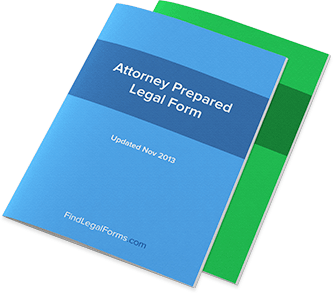Asset Purchase Agreements Legal Forms
These forms include a business asset purchase agreement and an agreement to purchase specific assets of a business only.

Forms
Asset Purchase Agreements FAQ
What is an Asset Purchase Agreement?
An Asset Purchase Agreement is a form of Purchase Agreement (a contract between both a buyer and a seller) in which the property being purchased qualifies as an asset; that is, an income-generating property like a business. They are more commonly used for the sale of businesses, though an Agreement to Purchase Specific Assets may offer a degree of customization to the transaction in question.
Asset Purchase Agreements are not intended for sale of ordinary property alone such as electronic equipment. Though real estate qualifies as a form of “asset,” Asset Purchase Agreements generally don’t cover real estate transactions, as separate forms exist for specific real estate transactions. In addition, Asset Purchase Agreements are sometimes used as an alternative to a merger or acquisition in an effort to reduce outstanding liabilities of the business selling the assets.
Why do I need an Asset Purchase Agreement?
As Asset Purchase Agreements deal with business purchases, it’s important that these large purchases be clearly defined in writing so as to avoid confusion as well as the potential for legal troubles. The Asset Purchase Agreement doesn’t only define the business being sold, but will define the purchase price, liabilities being transferred, and even the assets excluded from the transaction. You need this type of agreement if you’re buying a business – any kind of business – and especially as the transaction grows more complicated in nature.
What kind of provisions does an Asset Purchase Agreement usually contain?
Here are the provisions you can expect to see in an Asset Purchase Agreement:
Other provisions, including schedule and signatures, also provide for the carrying out of the asset purchase.
Which business purchases require an Asset Purchase Agreement?
Every business you buy or sell should come with an Asset Purchase Agreement for the reason that if you don’t commit the agreement to writing, your financial risk will be that much greater. There’s no guarantee that signing an Asset Purchase Agreement (or any other contract, for that matter) will fix all problems and prevent future ones from occurring, but they’ll give you legal recourse should any problems arise. This is true of all contracts. Because of the nature of Asset Purchase Agreements and how they typically represent a larger commitment of money and consideration by both parties, the need to put the agreement down in writing is that much greater.
How does an Asset Purchase Agreement help ensure I’m buying the right business?
No contract can change the essential nucleus of a business, but you’d be surprised at what a good Asset Purchase Agreement can do to ensure that what you know about the business you’re buying represents a comprehensive knowledge of the transaction at hand. In other words, an Asset Purchase Agreement includes provisions such as “Conditions” and “Schedule” that ensure that the business itself is in an ideal state when the transaction is to take place. As the purchaser, you may also be able to use provisions in the Asset Purchase Agreement to give you a way “out” of the deal if one of the key facts you thought you knew about the business ends up being false.
As the business seller, what conditions must I meet to satisfy an Asset Purchase Agreement?
The conditions will depend on your individual agreement, but most Asset Purchase Agreements contain a number of similar provisions you’ll want to be aware of. For instance, it’s important that you set forth all of the excluded assets in the transaction so that you are not committed to selling more than you want to. Additionally, the “Closing Date / Conditions” clause of the purchase agreement will typically lay out what conditions need be met before the official transaction is to take place.
Also watch for the “Schedules” provision, which will tell you not only what you need to do, but when you need to do it. Don’t sign the Asset Purchase Agreement until you’re sure that you can meet all of the conditions laid out in the contract; otherwise, your buyer will likely have a way out of the purchase.
When is an Asset Purchase Agreement valid?
Aside from the usual requirements of contract validity (both parties being of sound mind, of legal age, etc.), the validity of an Asset Purchase Agreement most strongly hinges on the notion of whether or not its conditions and schedule have been met. Because there is often a lot of money on the line in an Asset Purchase Agreement, these contracts will explicitly lay out how the business is to be transferred, which debts need to be reported and/or transferred, and when these conditions need to be met by. If these conditions are not met, it’s possible that the entire agreement will be rendered invalid.
When is an Asset Purchase Agreement enforceable?
When the conditions laid out in the question of validity (see above) are met and the contract has been signed. It’s not required that payment be made in order for the agreement to be enforceable; because payment is something required by the contract, the validity of the contract doesn’t hinge upon a late payment. In fact, this is one of the chief purposes of a contract like an Asset Purchase Agreement; assuring proper, on-time payment as well ensuring that all of the terms and conditions are met.
When is an Asset Purchase Agreement effective?
Though the agreement will lay out a schedule for meeting its requirements, the agreement itself is effective upon signing. Any further issues (such as one side not living up to the contract) will not diminish its effectiveness or enforceability.

